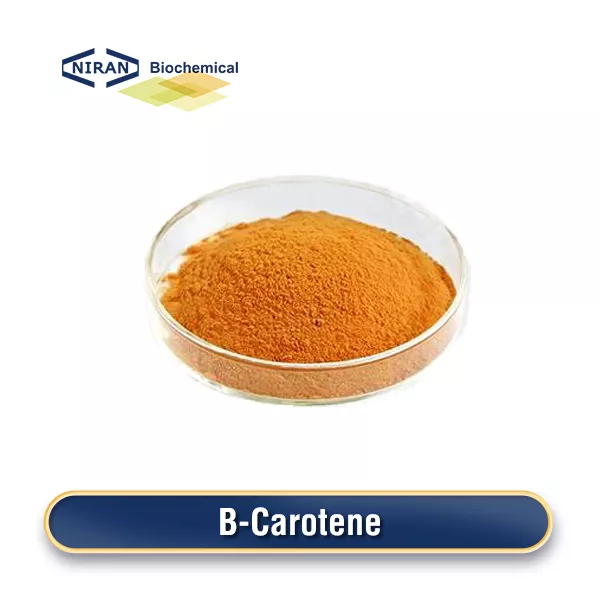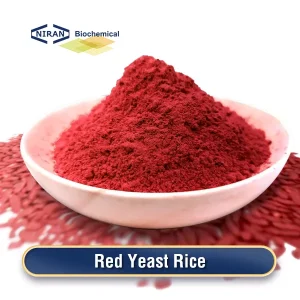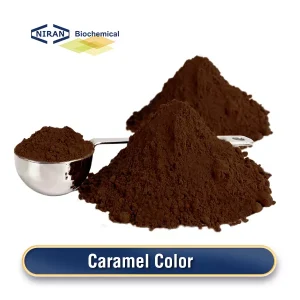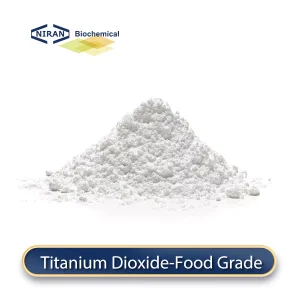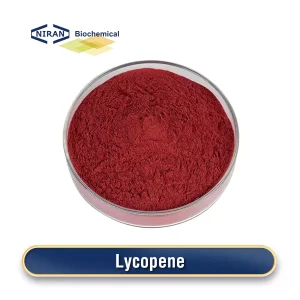Niran Biochemical
YOUR RELIABLE FOOD INGREDIENTS
Send Inquiry
β Carotene
- CAS: 7235-40-7
- Chemical Formula: C40H56
- Certification: KOSHER, ISO, HALAL, FSSC22000, BRC, etc.
- MOQ: 1000KG
- Shelf Life: 2 Years
Inquire Product
Product Description
What is β-carotene?
Among the carotenoids is β-carotene. It is a fat-soluble, orange-yellow substance. It is the most prevalent and long-lasting pigment found in nature. Its common appearance is orange-yellow powder or liquid. Dichloromethane, chloroform, and carbon disulfide are among the organic solvents in which it dissolves readily.
β-carotene finds wide use in the food, feed, cosmetic, and pharmaceutical sectors.
In China, there are primarily two ways to prepare β-carotene:
- Extract β-carotene from natural plants, such as carrots and tomatoes. These plant materials are crushed and extracted with appropriate solvents (such as ethanol, n-hexane, etc.) to extract β-carotene and other nutrients, and then extract them through separation and purification steps, and further purify them through chromatography and other technologies to obtain food-grade β-carotene.
- Produce β-carotene through chemical synthesis. This method can ensure the high purity and stability of the product and is suitable for large-scale industrial production.
- Produce β-carotene through biosynthesis using microorganisms (such as Escherichia coli, yeast, etc.) or plant cell engineering technology. The sustainability and environmental friendliness of this approach are its benefits.
Recommended dosage:
| Food name | Maximum usage(g/kg) |
| Juice | 0.5 – 1 g/kg |
| Biscuits and cakes | 0.5 – 1 g/kg |
| Seasonings and condiments | 0.1 – 0.5 g/kg |
| Salad dressings | 0.2 – 0.5 g/kg |
| Dairy products | 0.1 – 0.3 g/kg |
| Beverages | 0.1 – 0.3 g/kg |
| Yogurt products | 0.1 – 0.3 g/kg |
| Edible oils | 0.05 – 0.2 g/kg |
| Honey and jam | 0.05 – 0.2 g/kg |
| Bakery mixes | 0.05 – 0.2 g/kg |
| Vinegar and soy sauce | 0.05 – 0.2 g/kg |
| Candy and chocolate | 0.05 – 0.2 g/kg |
| Puffed foods | 0.05 – 0.2 g/kg |
| Meat products | 0.05 – 0.2 g/kg |
| Seasoned meat products | 0.05 – 0.2 g/kg |
β-carotene has a wide range of uses
- In the food industry, β-carotene is widely used as a pigment to add orange or yellow to products, enhancing their visual appeal and market competitiveness. In addition, it is also added to various foods, such as juice, dairy products, cereal products, etc., to enhance their nutritional value.
- Strong antioxidant β-carotene can assist the body eliminate free radicals, lessen the damage that oxidative stress causes to cells, support the maintenance of normal cell function, and postpone aging.
- β-carotene is a precursor of retinol (vitamin A), which can be converted into vitamin A and participate in the synthesis of retinal pigments, which is essential for maintaining visual function and protecting eye health.
- β-carotene can enhance the function of the immune system, help improve the body’s resistance to infection, and reduce the risk of chronic diseases.
- β-carotene can help reduce the level of oxidized lipids in the blood, reducing the risk of arteriosclerosis and cardiovascular disease.
User asked question:
Q: Is β-carotene vitamin A or C?
A: β-carotene is a precursor of vitamin A, not vitamin C. In the human body, β-carotene can be converted into active vitamin A, which is a nutrient necessary for maintaining visual health, skin health, immune function, etc.
Q: So far, how is the market for food-grade β-carotene in the domestic market? Is the price range large?
A: So far, the performance of food-grade β-carotene in the domestic market is relatively stable. Price fluctuations are usually affected by the stability of raw material supply, advances in production technology, and changes in market demand.
With the intensification of industry competition and technological progress, production costs are gradually declining, which helps to keep the price of β-carotene relatively stable.

